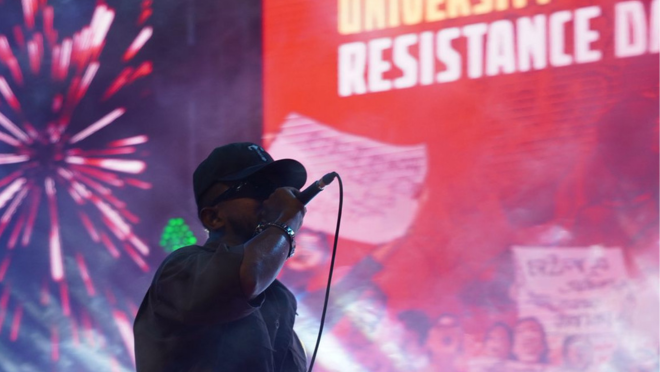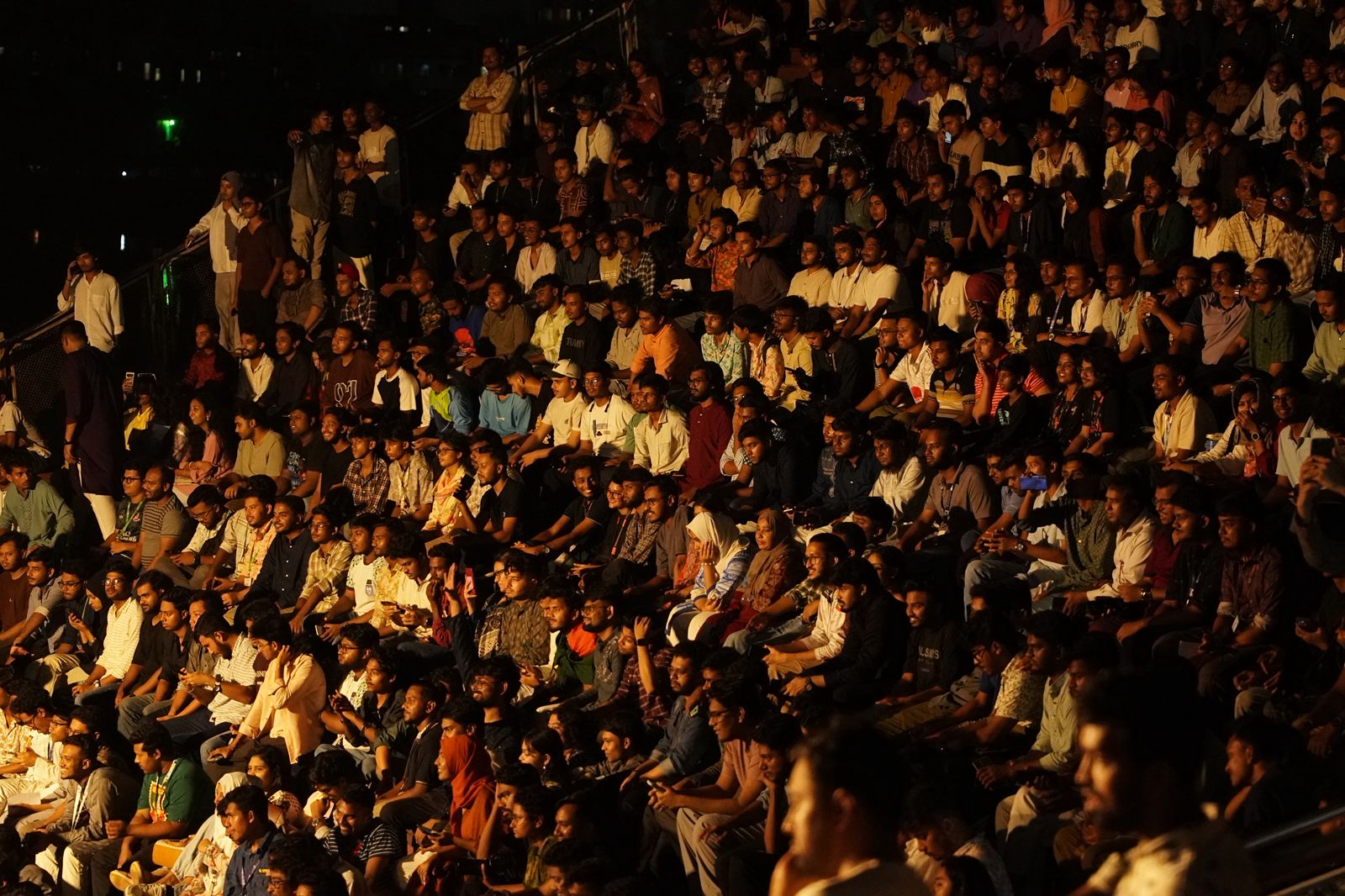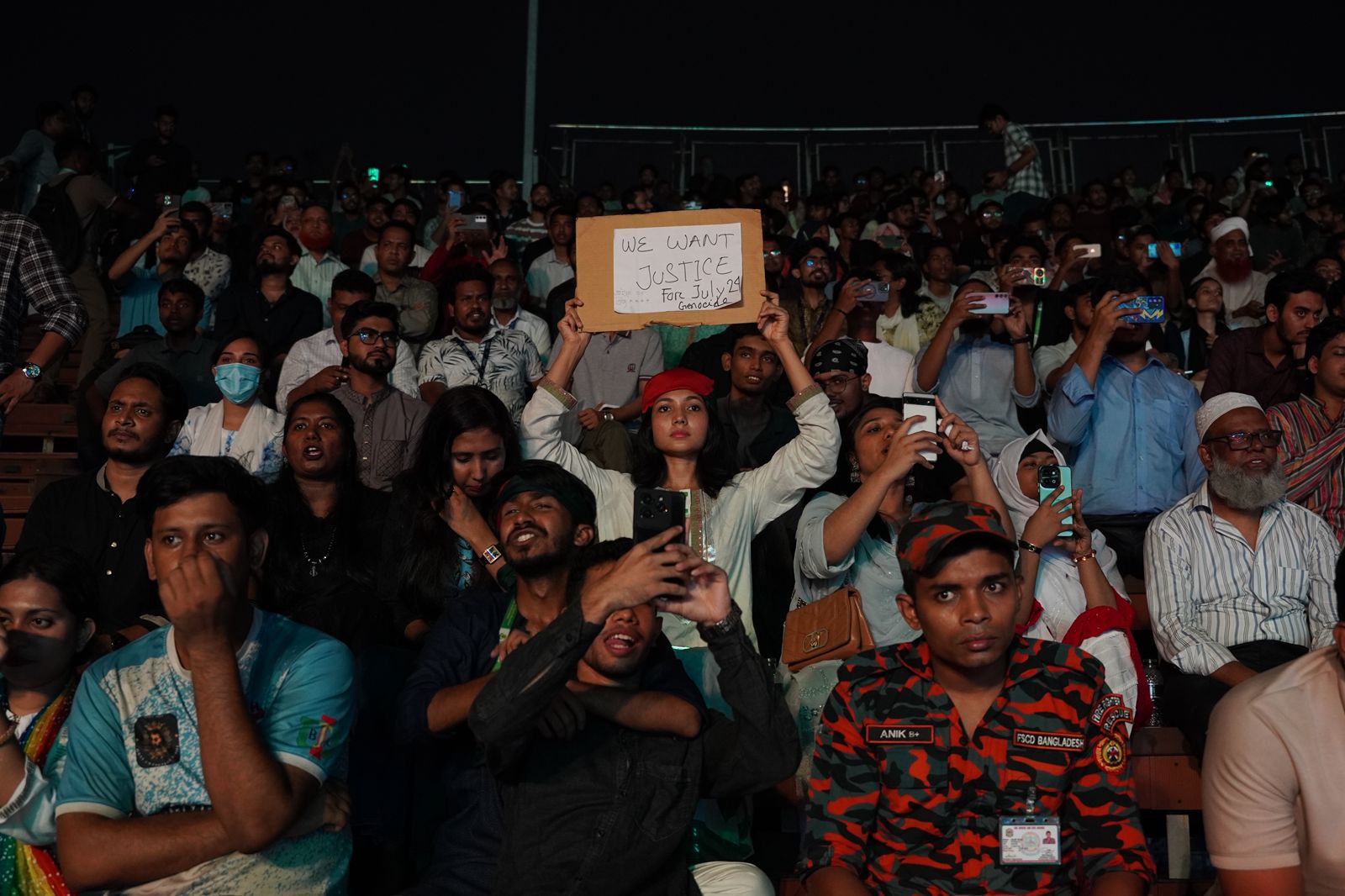Mismanagement marks ‘Private University Resistance Day’ event
Mismanagement marks ‘Private University Resistance Day’ event

On 18 July, the much-anticipated “Private University Resistance Day” programme was held at the Hatirjheel Amphitheatre, organised by the Cultural Ministry in collaboration with a group of student leaders.
The event was designed to commemorate the pivotal role of private university students during the July 2024 uprising, but unfortunately, it ended up sparking widespread criticism over poor planning, exclusionary narrative choices, and blatant disrespect to protest victims.
A venue unfit for the people
The choice of Hatirjheel Amphitheatre turned out problematic from the outset. The venue, though visually appealing, could not accommodate the size of the crowd, leading to excessive pressure on attendees and potential safety hazards. In addition, no designated workspace was provided for press and media personnel, making reporting difficult and undermining the visibility of the event in public discourse.

A documentary that distorted history
The programme opened with a documentary that aimed to highlight student involvement in the July movement. However, instead of unifying, the film immediately alienated large segments of the audience. Several major institutions, most notably East West University, were largely excluded from the narrative—with no proper interviews, adequate screen time, or acknowledgment of their frontline contributions.
Using photos without consent
As a frontline protester and professional photographer, I was utterly shocked when I saw the documentary used my photos and videos without my consent or any credit. This is not just unethical—it’s theft. My work, my footage from the ground—used without informing me. I am the one who has most of the exclusive photos and videos in my collection. This is not how we honour a revolution; this is how we exploit it.
No tribute to the martyred or injured students
Perhaps the most painful omission was the complete lack of formal recognition for martyred and injured students who were directly impacted during the July protests. Their names were not mentioned, no visual tribute was offered, and no moment of silence was observed.

For many in the crowd, this was a heartbreaking betrayal. As one attendee put it, “We came here expecting remembrance. Instead, they buried the memory of those who gave their blood for this cause.” This exclusion alone turned the programme into an act of historical distortion—a rewriting of the very events it claimed to commemorate.
Chaos on stage
The cultural portion of the evening further discredited the organisers. During a musical performance featuring songs from the movement, a rapper insulted the audience by yelling disgraceful words from the stage that immediately caused shock and anger. Water bottles were thrown in retaliation, and panic spread throughout the amphitheatre.
Though student organisers attempted to regain control, the situation spiralled into chaos, forcing the program to be paused temporarily.
Drone show mishandled
The event’s closing highlight—a symbolic drone light show—was postponed twice, first due to interference by a civilian drone, and later due to poor coordination between the technical team and organisers. By then, audience morale had already plummeted, and the symbolic weight of the show was lost.
A shameful missed opportunity
In its totality, the programme reflected a profound failure on the part of the Cultural Ministry and the student organisers. Rather than honouring the resistance, the event diluted and misrepresented it—silencing critical voices, excluding key contributors, and ignoring the sacrifices made by students who risked their lives on the frontlines. Events like this must be executed with care, integrity, and accountability. Sadly, this one was not.


